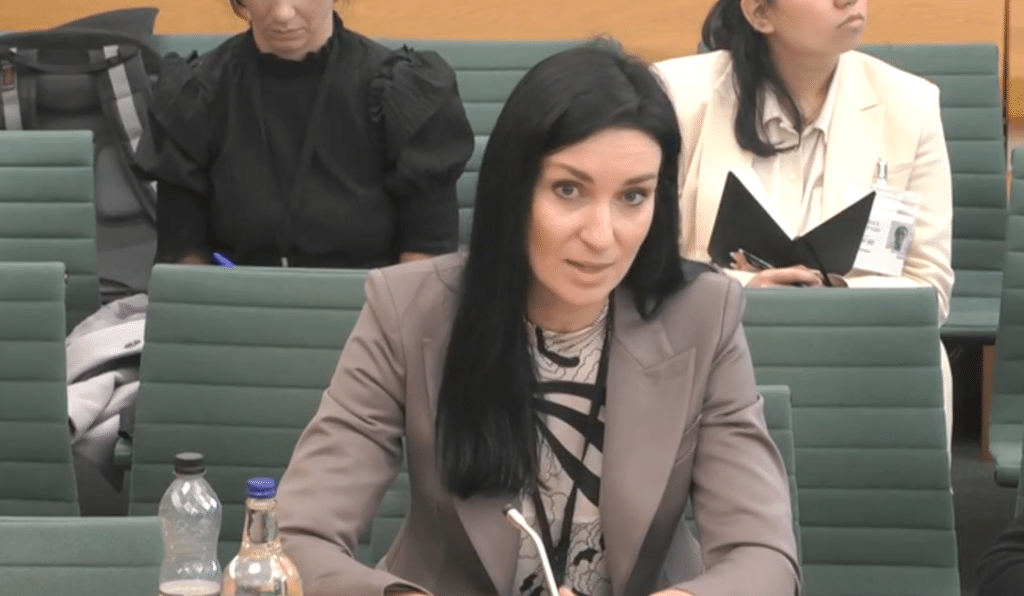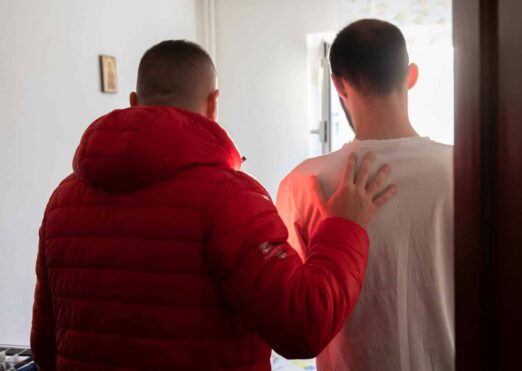Justice and Care gives evidence to Home Affairs Committee
May 16, 2023
The Head of the Modern Slavery Policy Unit at Justice and Care and the Centre for Social Justice was privileged to give evidence to the Home Affairs Committee’s inquiry into human trafficking last week.
Tatiana Gren-Jardan appeared alongside four other expert witnesses in front of a cross-party group of MPs, created to assess the scale of human trafficking in the UK and the forms it takes. The committee is also investigating whether Government policy, legislation and the criminal justice system can be improved to better prevent trafficking, prosecute perpetrators and protect victims.
The mixed outcome of the Modern Slavery Act 2015 and the huge backlog of the National Referral Mechanism (NRM) were among the issues discussed in the session. The gathering on Wednesday also saw Justice and Care’s award-winning Victim Navigator Programme praised as ‘a really good model that should be replicated’.
Watch the full committee session here:

Discussing the Modern Slavery Act, Tatiana told the committee its impact ‘could be better’, although it has led to ‘a lot of good things’ – including awareness being raised about slavery and the number of police investigations skyrocketing from 166 to around 3,500 in England and Wales across the last six years.
But she went on to warn that support services have not been fit for purpose, faced with year-on-year increases in the number of victims of slavery identified since the Act was brought in.
The Policy Unit’s landmark study ‘It Still Happens Here’ estimates that there are more than 100,000 victims of modern slavery in the UK.
Tatiana said that an increase in the identification of survivors is a positive thing and there has been no factual evidence of false claims and abuse, as suggested by the government. Speaking in front of MPs including Dame Diana Johnson and Tim Loughton, she also expressed her worry that ‘we are now undoing everything we have achieved so far’ with the Illegal Migration Bill currently progressing through Parliament.
Turning to the NRM, the national framework for identifying victims of modern slavery and ensuring they receive the appropriate support, Tatiana cautioned that British nationals in particular have been let down by the support services as there has not been much awareness of how to help them.
Last year, people within the NRM waited for an average of 543 days for a conclusive grounds decision which, if positive, officially recognises that they have been trafficked.
Evidence was also given by Sylvia Walby, Professor of Criminology at Royal Holloway, University of London and Ruth Breslin, Research Associate at The Sexual Exploitation Research Programme.
Two more expert witnesses were called in the second half of the session – Kate Roberts, Head of Policy at Focus on Labour Exploitation and Elysia McCaffrey, Chief Executive at the Gangmasters & Labour Abuse Authority (GLAA).
Justice and Care’s Victim Navigator Programme was endorsed by Ms McCaffrey after a Navigator was deployed within the GLAA last year.
‘We have found that since we have had our Victim Navigator, all of the victims that we’ve worked with have stayed engaged with us’, she said.
‘That means they’re better able to get help, and it also helps us when we’re taking people to court, because they understand the process better, they understand how to engage and they feel supported. It has made a real difference to us.’


